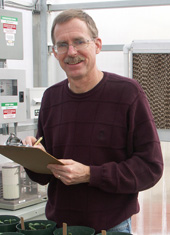
Page last modified: October 20, 2022
Vegetable Crops Hotline - Horticulture & Landscape Architecture, 625 Agriculture Mall, West Lafayette, IN 47907© 2026 Purdue University | An equal access/equal opportunity university | Copyright Complaints | Maintained by Vegetable Crops Hotline
If you have trouble accessing this page because of a disability, please contact Vegetable Crops Hotline at plangenh@purdue.edu | Accessibility Resources